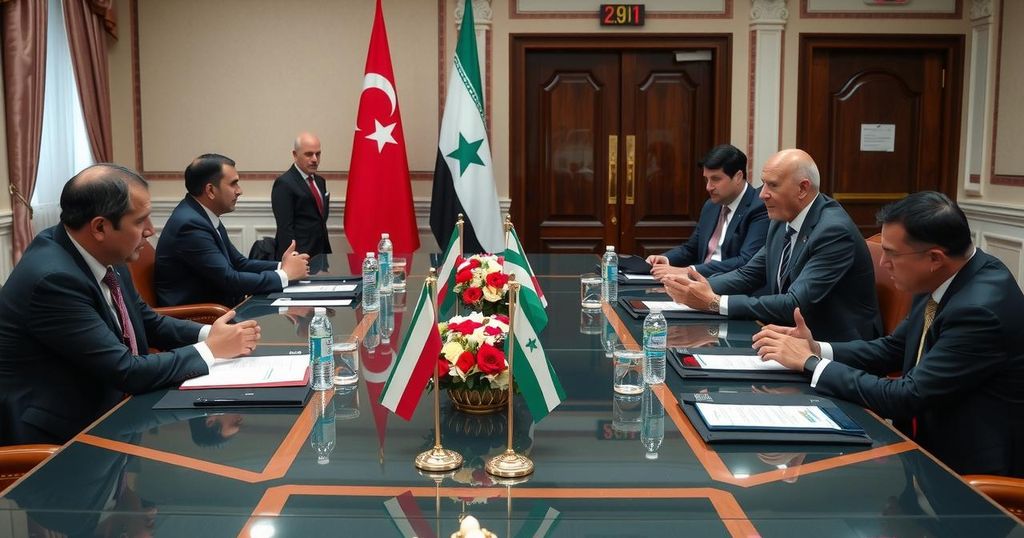US, Turkey, and Arab Officials Advocate for Peaceful Transition in Syria

Officials from the US, Turkey, and Arab nations support a peaceful transition in Syria following talks in Jordan, emphasizing the need for inclusive governance and regional stability while addressing concerns over terrorism and the influence of external powers.
Officials from the United States, Turkey, and several Arab nations have reached a consensus to endorse a peaceful transition in Syria, following pivotal discussions in Aqaba, Jordan. Jordanian Foreign Minister Ayman Safadi underscored the collective desire of regional powers to avoid a descent into chaos. US Secretary of State Antony Blinken revealed that direct communication has occurred with the rebel group Hayat Tahrir al-Sham (HTS) about the ongoing situation in Syria.
A united statement advocated for the establishment of a comprehensive Syrian government that safeguards minority rights and prevents the emergence of terrorist factions. Conversations surrounding the critical need for new governance that reflects the diverse Syrian populace have become prevalent in the aftermath of recent upheavals. Additionally, Iraqi Foreign Minister Fuad Hussein vocalized concerns regarding Syria’s future, echoing sentiments of caution shared by neighboring countries to avoid a scenario reminiscent of Libya’s post-Gaddafi turmoil.
Turkish Foreign Minister Hakan Fidan emphasized the necessity for the preservation and reform of existing Syrian institutions, asserting the importance of preventing terrorism from exploiting the transitional phase. He remarked, “Never allow terrorism to take advantage of the transition period.”
Despite HTS’s declaration of intent to pursue inclusive governance, skepticism arises due to its history of violence. Secretary Blinken confirmed ongoing dialogue with HTS, particularly concerning the case of missing American journalist Austin Tice, yet reminded parties that the group remains classified as a terrorist organization. Notably absent from the discussions were Syrian representatives, as well as Iran and Russia, both pivotal nations that had historically supported President Bashar al-Assad.
The various external influences that have contested control within Syria continue to cast a long shadow over its future, highlighting the critical need for political unity both internally and externally for the benefit of the Syrian people.
The geopolitical landscape in Syria has been fraught with conflict since the onset of civil unrest in 2011. The complex interactions between various regional and global powers have shaped the country’s fate, with the US, Turkey, and Arab nations standing in opposition to the Assad regime while also striving to prevent chaos similar to that witnessed in Libya. The formation of a new, inclusive governing body that represents the diverse demographics of Syria is now seen as paramount to securing a stable and unified future for the nation.
The recent talks in Jordan among US, Turkish, and Arab officials signify a collective commitment to fostering a peaceful transition in Syria amidst ongoing challenges. The discussions highlight the importance of an inclusive governance model that caters to all sects and prevents any resurgence of terrorism. Moving forward, the success of this initiative hinges on collaboration among both internal and external stakeholders disillusioned by past conflicts, with the ultimate goal being the establishment of a secure and sovereign Syrian nation.
Original Source: www.bbc.com








